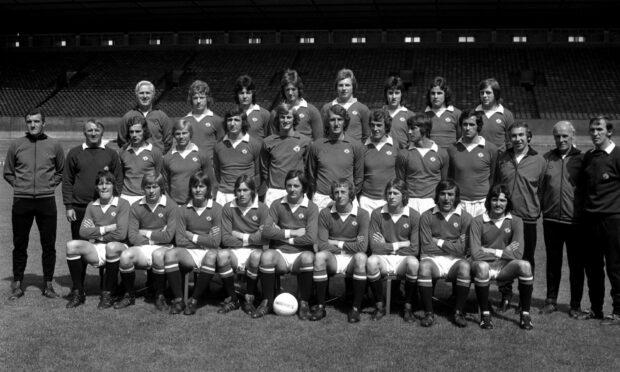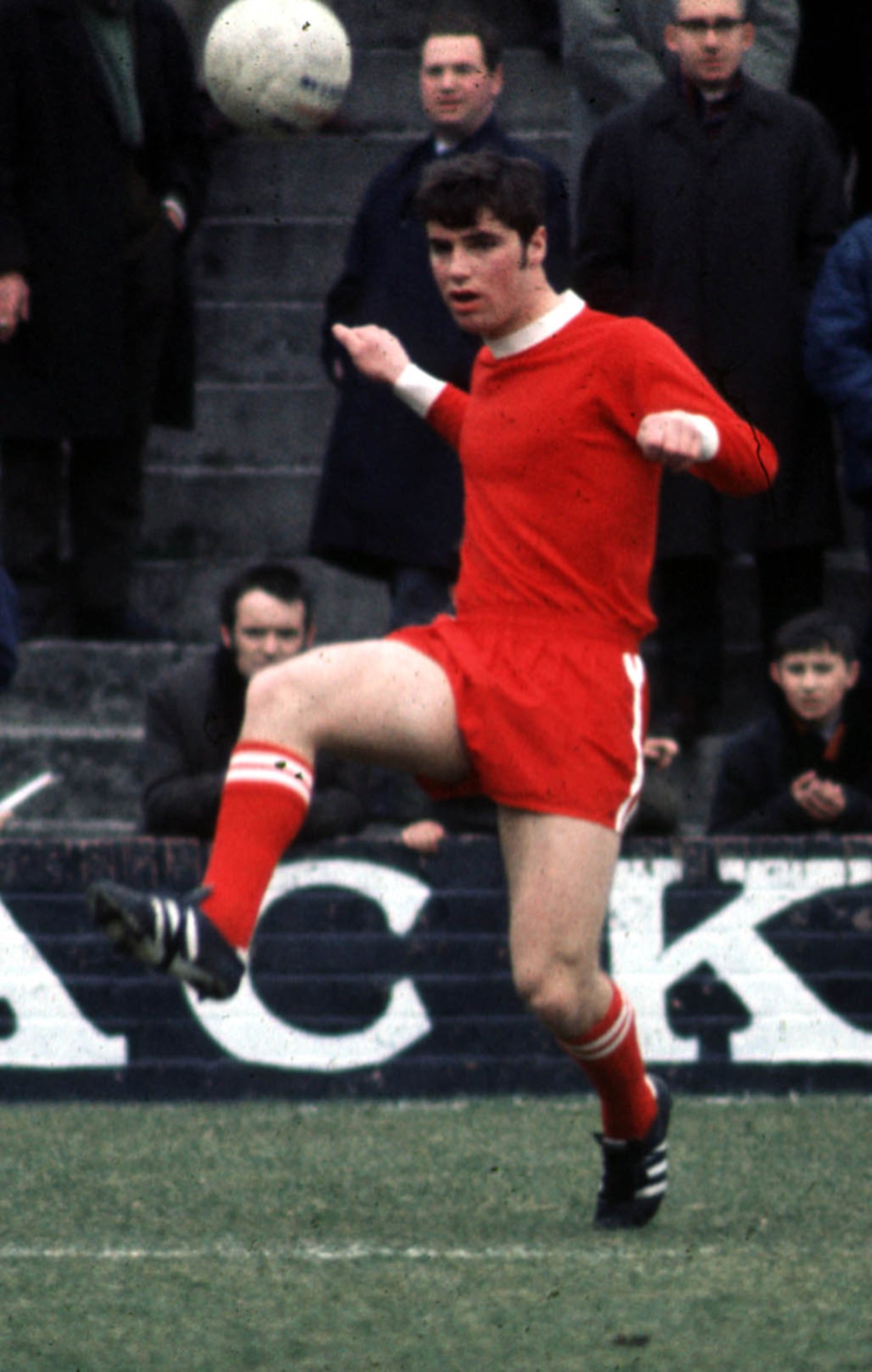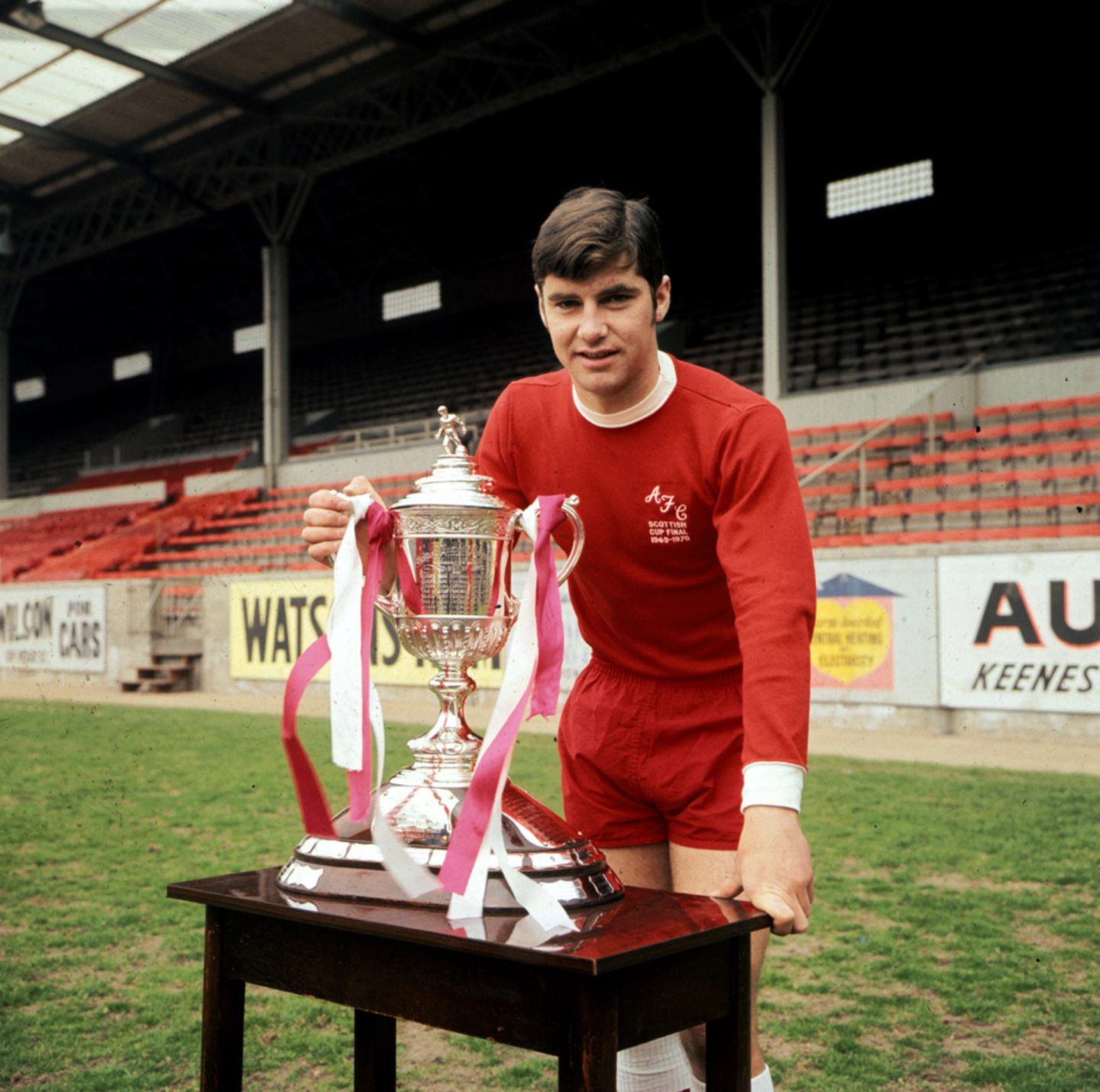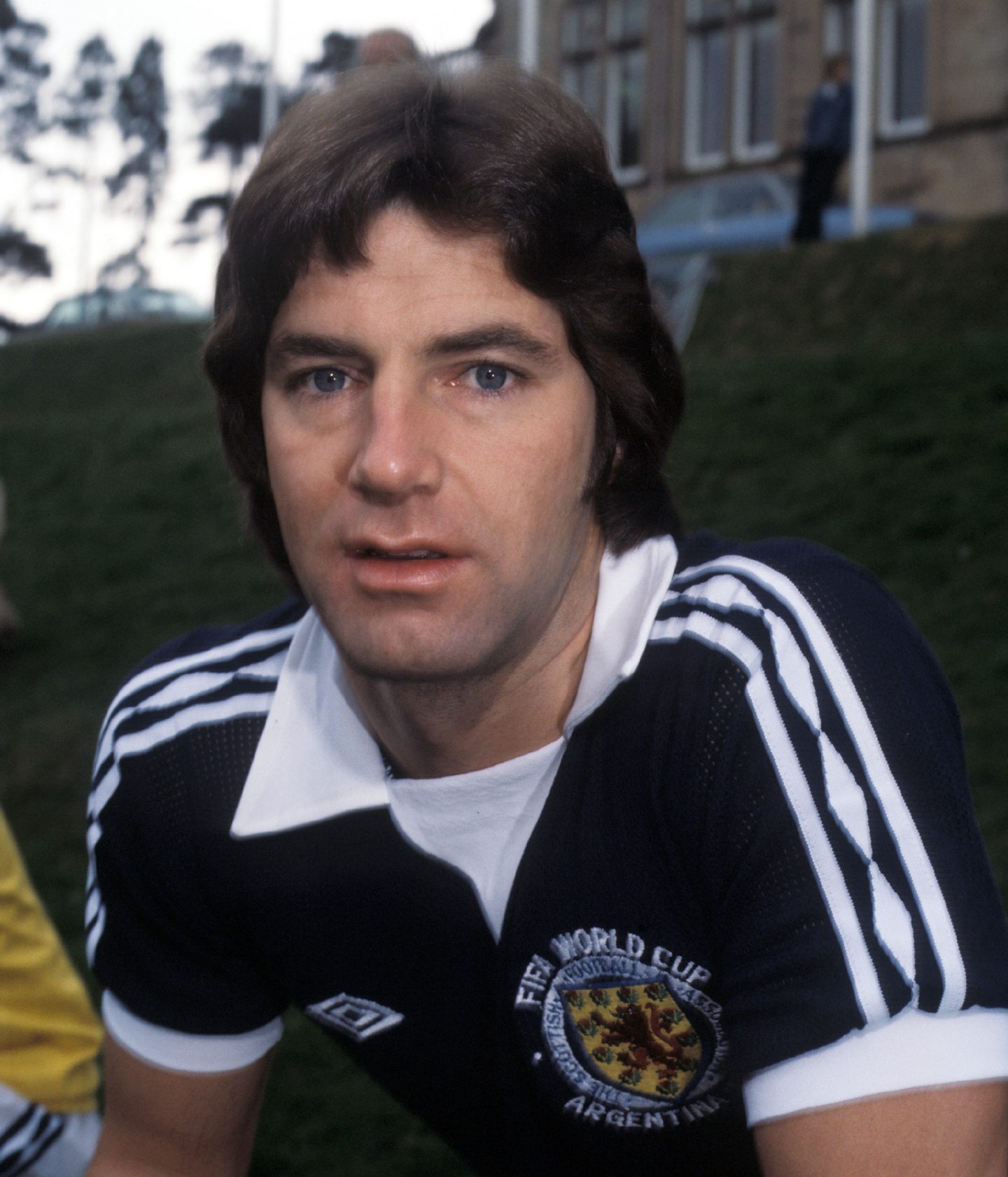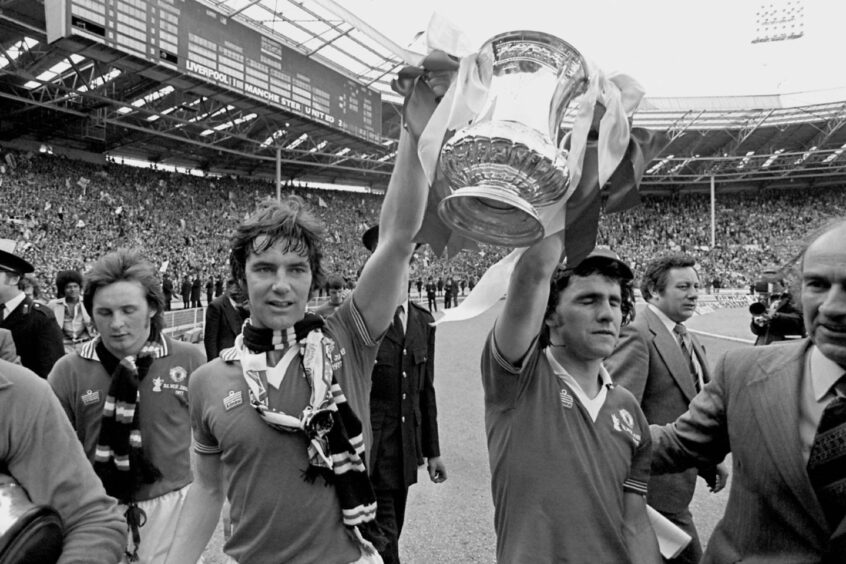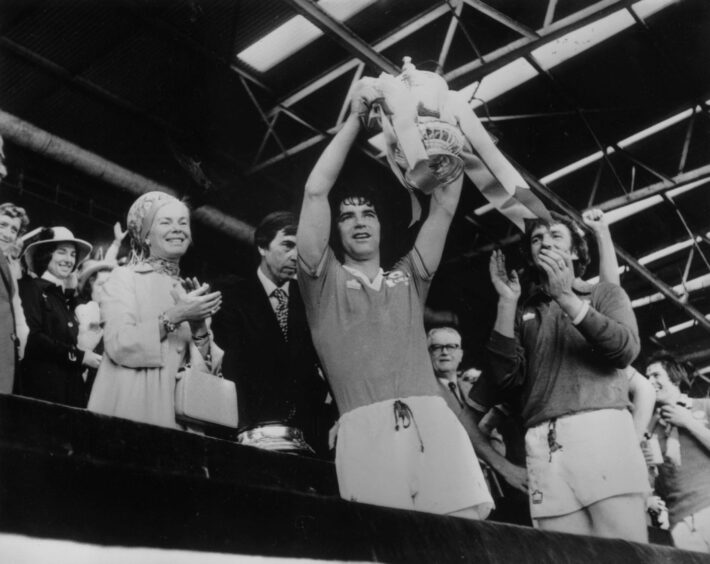Martin Buchan was one of the pivotal figures in the Aberdeen team he led to glory in the 1970 Scottish Cup Cup final at just 21.
Yet, less than two years later, he had been signed for Manchester United by Frank O’Farrell for a club record £120,000 and joined the likes of fellow Aberdonian Denis Law, Bobby Charlton and George Best at Old Trafford.
It should have been the launchpad for the classy Scot to pursue trophies and triumphs on a regular basis, but the opposite proved to be the case as the Red Devils flirted between stratospheric highs and Stygian depths.
First, they lost the aforementioned “Holy Trinity”, for different reasons, with Best hitting the bottle and vanishing into the night, Charlton retiring and Law moving to Manchester City in circumstances which left him feeling deflated.
Then, even as Buchan bemoaned the complacent attitude – “We’re too good to be relegated” – adopted by some of his teammates, the European Cup Winners of 1968 were indeed dumped down to the second tier in 1974.
But, despite being made several offers to move elsewhere, he stayed loyal to United and was instrumental in their recovery in the second half of the 1970s, even if it was accompanied by rancour and acrimony, on and off the pitch.
And now, Buchan has given an account of that turbulent decade with the club.
As somebody who always offered everything he had for his employers, whether in Scotland or England, Buchan was bemused by the fashion in which a merry-go-round of managers came and went at Old Trafford in the ’70s.
Matt Busby, for so long the heartbeat of the club, was succeeded – if that’s the right word – by Wilf McGuinness, who memorably summed up his travails in the role after he was dismissed in December 1970 by saying: “I was only 31, it was like Ronnie Corbett marrying Dolly Parton: the job was too big for me!”
Frank did it his way… for a while
Sir Matt briefly returned to the hotseat – and became the recipient of his second This Is Your Life appearance live on TV when Eamonn Andrews surprised him with his famous red book – but he realised fresh blood was required and O’Farrell was given the responsibility for steering United away from the mediocrity which had gradually enveloped them.
It was a huge task, though, not least because some of the club’s most gifted talents were reaching the end of the road.
O’Farrell, at least, signed Buchan who “had no hesitation in putting pen to paper (after a quick phone call to (former Dons boss) Eddie Turnbull)” during a meeting in Bellshill.
But, despite the reshuffling between 1970 and 1973, Old Trafford was no longer a place opponents had any fears about visiting.
The steady decline inexorably ate away at the resolve of everybody, including their most faithful supporters, who had poured into the Stretford End before and after the horrific loss of life sustained in the Munich air disaster in 1958.
This was hard to bear for Buchan
No wonder Buchan was frustrated with the approach of some of those around him, both before and after O’Farrell’s sacking in 1972 and the appointment of tough-as-teak Tommy Docherty, who soon encountered his own issues.
It would have been one thing if the team had simply not been good enough, but the suspicion they were still trading on past glories was all too plain.
Buchan said: “The 1972-73 season saw us on a downward spiral, unacceptable for a club of our stature, and a 5-0 defeat at fellow strugglers Crystal Palace on December 16 saw Frank replaced by Scotland manager Thomas Henderson Docherty, who had given me my first full cap against Belgium in 1971.
“I have to say that some of my United team-mates at that time should be ashamed of their lack of support and commitment to Frank O’Farrell and his assistant Malcolm Musgrove’s ideas and approach to the game.
“The Doc quickly drafted in a number of Scots such as Lou Macari, George Graham, Alex Forsyth, Jim Holton and Stewart Houston and, by the time we started the 1973-74 season, Bobby Charlton, Denis Law and George Best had all left the club, although George did return for a short spell (in October).
“I always felt that Bobby, who trained conscientiously and took great pride in his fitness could have easily played, and played well, for one more season.
“But I believe his heart was broken at the plight of his beloved club.”
He wasn’t the only person to be traumatised by the United descent.
Roy Cavanagh MBE and Carl Abbott have created a comprehensive new work, The Big Manchester United Book of the Seventies, about that incident-packed decade and, while rival fans looked at their plight with a sense of delicious schadenfreude, matters worsened in 1974.
Buchan recalled: “We struggled at the wrong end of the table for much of the season and then the unthinkable, RELEGATION, happened.
“Some of the squad had thought we were too good to go down, the same people who, in my opinion, had let Frank O’Farrell down.
“It came as a seismic shock, by far the biggest disappointment of my career, but although I was aware that a number of other clubs were interested in me, I resolved to stay at Old Trafford and help United back to the First Division.
‘It was an exhilarating period’
“The fans stayed loyal too and we played in front of record crowds in an exhilarating roller-coaster ride which saw us bounce straight back to the top flight, thanks in no small part to the goalscoring feats of Stuart Pearson and Lou Macari, although not quite in the ‘canter’ that Lou once remarked to me.
“Hooliganism was a curse on the game throughout England at that time and we saw reports of occasional outbreaks of crowd trouble involving our fans that season.
“But the only one I saw with my own eyes was the battle behind one of the goals at Notts County towards the end of the match; an outrageous slur on the name of the club by a minority of mindless morons.”
Thankfully, United were back where they believed they belonged, and after Buchan was appointed captain, he was in his element with the Doc.
Not that there weren’t further bumps on the road on this particular journey.
‘We’ll go back and win it next year’
The next two years brought the wow factor back to Old Trafford and their Aberdeen skipper relished the buzz in the stadium, when they trained assiduously in the empty arena.
They felt they could offer anybody a 2-0 lead and still overhaul them – and did so on a regular basis with adrenaline-laced aggression Docherty instilled in his charges.
United reached the FA Cup final in consecutive seasons, in 1976 and 1977, and, befitting that quixotic period in their history, experienced contrasting fortunes along with the thousands of supporters who travelled to Wembley.
In the first meeting, as Buchan recalled: “I felt we could have won the league had some of the players not been distracted by the FA Cup run which ended badly in defeat by Southampton (courtesy of Bobby Stokes’ late goal).
“I well remember standing next to the Doc on the balcony of Manchester Town Hall when he told a packed Albert Square that we would ‘go back and win it next year’. And the rest is history….”
The Scot was impressed by how Docherty strengthened the Old Trafford team during his tenure with the “missing link” Jimmy Greenhoff and the two “raiding” wingers in Steve Coppell and Gordon Hill.
But although the manager was as good as his word, Buchan faced problems of his own as United prepared for their final showdown with Liverpool.
Indeed, he was almost convinced he would have to sit out the occasion.
‘My belly was full of tablets’
He said: “I feared that I was going to miss out due to a knee ligament injury I picked up in the last league match of the season at West Ham on the Monday before we faced Liverpool.
“I even told the manager on the morning after the game that I might as well go back on the train to Manchester.
“But he insisted I get on the bus and our physio Laurie Brown worked wonders and got me fit enough to take the field on the Saturday, although my fitness test consisted of little more than standing in the goal in a nine-a-side game on the Friday morning.
“With strapping on my knee and a belly full of anti-inflammatory tablets, I led the lads out, wondering if I was doing the right thing, but a 50-50 tackle with Tommy Smith in the centre circle early in the game dispelled my fears and let me concentrate on the task of marking Kevin Keegan.
“Rookie Arthur Albiston played the game of his young life as we beat the league champions 2-1 (with goals from Stuart Pearson and Greenhoff).
“And we were back at Manchester Town Hall on the Sunday, with the Cup this time, and I had it in my hands as we eventually came off the team bus.
The trophy made an unscheduled stop
“The main building was locked up and everyone was hurrying away to carry on their own celebrations. I asked the Doc: ‘What do I do with this?’
“Take it home and bring it back in the morning’, was the reply.
“Which is why the FA Cup made an unscheduled appearance in the Wheatsheaf Pub in Altrincham later that afternoon.
“It’s just as well there were no mobile phones with cameras in those days or a posse of security men guarding the cup as they always have now.”
This should have been the crowning moment of Docherty’s reign but, instead, he barely had time to enjoy the moment before he was shown the door.
It’s a feature of The Big Manchester United Book of the Seventies that such stark contrasts and tales of the unexpected proliferate the pages of the new work.
As Buchan said: “What happened next shows that football really is a funny old game as Tommy was dismissed when his love affair with Mary Brown, the wife of the club physio, came to light.
“The club board felt that he had behaved badly and it cost him his job.
“For the second time in my career, a manager who had led the club to cup glory had moved on (the first was Turnbull at Aberdeen) and left me wondering just how good we could have been had he stayed.”
Book paints a period of chaos
Roy Cavanagh said he was delighted that Buchan had agreed to lend his name and substantial reminiscences to the book, which carries details of every single match United played throughout the 1970s.
And while it is certainly a madcap journey, it was a time when nobody could remotely accuse United of being the basket case they have become under Ole Gunnar Solskjaer and the board in 2021.
Buchan said: “The instant return to the First Division as champions after our only season in the Second and the 1977 FA Cup win were the obvious highlights, whilst the honour of being captain of one of the greatest football clubs in the world is something I treasure and will never forget.”
- The Big Manchester United Book of the Seventies is available from Legends Publishing.
